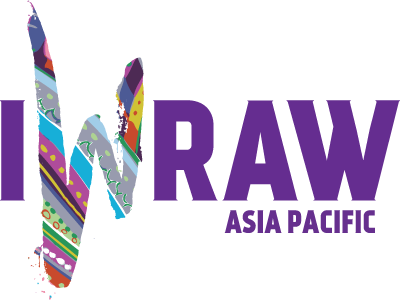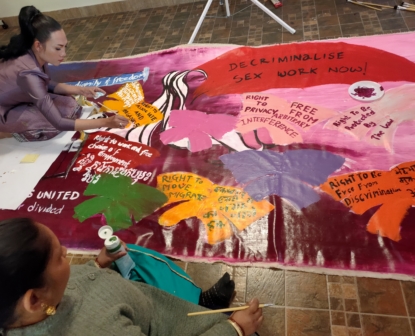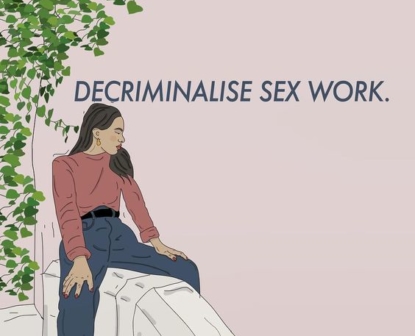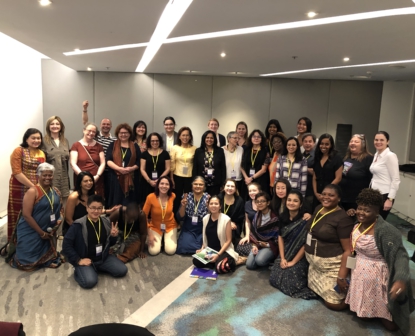Project
FACT: Feminist Approaches to Counter-Trafficking
-
Amount Funded
91,789 EUROProject Duration
01 Jan 2019 - 31 Dec 2019 -
-
The International Women’s Rights Action Watch Asia Pacific (IWRAW Asia Pacific) strengthens national women’s’ groups and alliances in Asia by carrying out and sustaining the work related to the Convention on the Elimination of All Forms of Discrimination against Women (CEDAW Convention).
IWRAW Asia Pacific approaches focus on bringing about the domestic application of international human rights norms. It prioritises creating and deepening conceptual clarity through the development of methodologies to identify and address discrimination against women in its various contexts. For example, it has developed a monitoring tool to assess compliance with the CEDAW Convention, as well as on process and advocacy necessary for holding states accountable for violations.
-
Organisation
The International Women’s Rights Action Watch Asia Pacific (IWRAW Asia Pacific) strengthens national women’s’ groups and alliances in Asia by carrying out and sustaining the work related to the Convention on the Elimination of All Forms of Discrimination against Women (CEDAW Convention).
IWRAW Asia Pacific approaches focus on bringing about the domestic application of international human rights norms. It prioritises creating and deepening conceptual clarity through the development of methodologies to identify and address discrimination against women in its various contexts. For example, it has developed a monitoring tool to assess compliance with the CEDAW Convention, as well as on process and advocacy necessary for holding states accountable for violations.
-
Project
The decision of the Committee on the Elimination of All Forms of Discrimination Against Women (CEDAW Committee) to develop a general recommendation on trafficking in the context of global migration provides a significant opportunity to provide a strong, systemic, feminist analysis to the issue of trafficking in women and girls, and to initiate a much needed wider discussion between the women’s rights, labour rights and migrant rights movements on a feminist re-framing of how trafficking as a human rights violation is understood and responded to.
Human trafficking is a serious crime and gross violation of human rights.Despite significant efforts, trafficking continues to persist worldwide. Additionally, IWRAW is witnessing a roll-back of rights based gender-sensitive migration and labour policies the world over as a result of not paying attention to the root causes driving trafficking, such as gender and economic inequality, the precarisation of labour, restrictive migration policies, climate change and natural disasters, and conflict.
To address this complex and multi-faceted problem, IWRAW Asia Pacific works with partners in the labour rights and migrant rights movement on the proposed project that seeks to ensure that the proposed CEDAW general recommendation on trafficking in women & girls in the context of global migration reflects the lived realities of marginalised groups affected by trafficking and outlines rights-based measures to combat trafficking. Through organising a collaborative global convening, research and writing, developing advocacy tools and a dynamic communications campaign over a period of 12 months, IWRAW Asia Pacific seeks to galvanise women’s rights, labour rights and migrant rights activities to advocate collaboratively and cohesively around the CEDAW general recommendation, particularly opening up pathways to the CEDAW advocacy space for marginalized groups. IWRAW Asia Pacific also seeks to conscientise policy makers primarily at the international level to be responsive to the needs of the marginalised groups.
In so far as the CEDAW general recommendation are an authoritative instrument obliging all State parties to CEDAW to take measures to address trafficking in line with it, it certainly influences standard setting at the national level. Accordingly, the project creates tools to ensure that national groups can continue to work across movements using a feminist, intersectional analysis to trafficking after the general recommendation is adopted.
-
-
The decision of the Committee on the Elimination of All Forms of Discrimination Against Women (CEDAW Committee) to develop a general recommendation on trafficking in the context of global migration provides a significant opportunity to provide a strong, systemic, feminist analysis to the issue of trafficking in women and girls, and to initiate a much needed wider discussion between the women’s rights, labour rights and migrant rights movements on a feminist re-framing of how trafficking as a human rights violation is understood and responded to.
Human trafficking is a serious crime and gross violation of human rights.Despite significant efforts, trafficking continues to persist worldwide. Additionally, IWRAW is witnessing a roll-back of rights based gender-sensitive migration and labour policies the world over as a result of not paying attention to the root causes driving trafficking, such as gender and economic inequality, the precarisation of labour, restrictive migration policies, climate change and natural disasters, and conflict.
To address this complex and multi-faceted problem, IWRAW Asia Pacific works with partners in the labour rights and migrant rights movement on the proposed project that seeks to ensure that the proposed CEDAW general recommendation on trafficking in women & girls in the context of global migration reflects the lived realities of marginalised groups affected by trafficking and outlines rights-based measures to combat trafficking. Through organising a collaborative global convening, research and writing, developing advocacy tools and a dynamic communications campaign over a period of 12 months, IWRAW Asia Pacific seeks to galvanise women’s rights, labour rights and migrant rights activities to advocate collaboratively and cohesively around the CEDAW general recommendation, particularly opening up pathways to the CEDAW advocacy space for marginalized groups. IWRAW Asia Pacific also seeks to conscientise policy makers primarily at the international level to be responsive to the needs of the marginalised groups.
In so far as the CEDAW general recommendation are an authoritative instrument obliging all State parties to CEDAW to take measures to address trafficking in line with it, it certainly influences standard setting at the national level. Accordingly, the project creates tools to ensure that national groups can continue to work across movements using a feminist, intersectional analysis to trafficking after the general recommendation is adopted.
-
News






